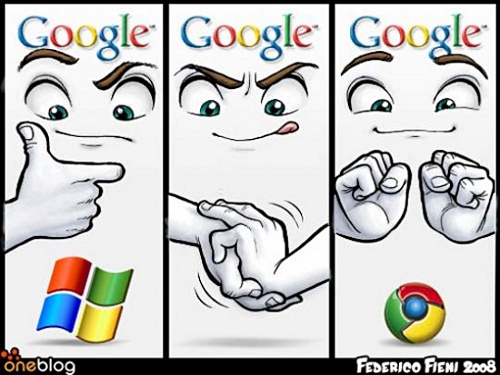How to Create a Personal or Professional Brand
Saturday, January 15, 2011
A company I worked for had a particular manager that I had never met. Despite that, I felt like I did know him because, whenever his name came up in conversation, the typical reaction I heard was, “He’s a real a$$*#%! hole.” After about the fifth or so time of hearing those exact words, I had begun to develop a very distinct impression about him. Like it or not, he had been branded.
When we think about commercial brands, we tend to think of a name, sign, symbol or slogan… anything that is used to identify and distinguish a specific product, service or business. But on a more basic level, a brand is an identification mark… such as when using a branding iron to mark an animal to indicate ownership.
That “mark” can also be a symbol of disgrace or infamy, as in the Bible when it says that “…the Lord set a mark upon Cain” after he killed his brother, Abel. A mark or brand can also stigmatize, accuse or condemn, or brand as disgraceful, as in the case of the a$$*#%! hole manager.
Companies often confuse their brand with the logos, trademarks, signs, symbols or designs that identify the product or services they sell. But your brand is a distinctive identity that is associated with the product, service or organization. Brands are more than just names slapped on your products by the marketing department. They embody the value those products have in eyes of your customer. Or at least they ought to.
To most companies, their brand is centered around their product. But brands are more about the promises you deliver than the products sell. The promise of value (and the delivery on that promise) is at the heart of it. So true branding is about selling a promise of value.
But promises are serious business. Making too many or changing them frequently raises questions about the character of the individual or organization doing so.
Companies can say (or promise) whatever they like about their organization, product or service, but what they say is typically what they want the buying public to believe about their organization, product or service. But what you do proves what you believe, not what you say. And if what you believe about your company is not the same as what you want the public to believe about your company… well, that’s the definition of a hypocrite.
And if what you think the buying public believes about your organization, product or service is not what they actually believe, well, that’s called denial. (Or stupidity… you choose.)
Want to know what your real brand is? It’s whatever word your customer uses to complete the following sentence:
“Oh, [Company Name]… that’s the company who _________________________.”
How would your customers answer that question?
I once worked door-to-door sales for a lawn care company. A common response I heard from homeowners after I identified myself was, “Oh… you’re the company who constantly calls and calls and won’t leave me alone.” More than one customer told me that they refused to do business with us because of this – despite being satisfied with the quality of lawn care.
Remember how I said that a brand can also be a symbol of disgrace or infamy?
The owner of a small restaurant in Cherryvale, Kansas, recounted how she and her husband had always thought their restaurant was unique because they were the nicest restaurant in town. But, by surveying their customers, they found out otherwise. In her words, "We were surprised to learn that, instead of being the 'nicest' restaurant in our small town, it was known as the 'birthday' and 'anniversary' place. Why? Because it was the nicest place in town. So now we market it that way, always collecting data from our customers as to when their birthdays and anniversaries are, and sending them cards for a free piece of pie or box of candy when they dine here for their occasion."
As you have probably noticed, your brand is closely associated with the value you provide to your customers. The people in Cherryvale valued this small town restaurant as the “birthday” and “anniversary” place because it was the nicest place in town. And its owners delivered on their promise of value by making sure it was the nicest place in town.
Determining what your customer values and then delivering on that value is what true branding is all about… regardless of whether it’s a professional or a personal brand.

